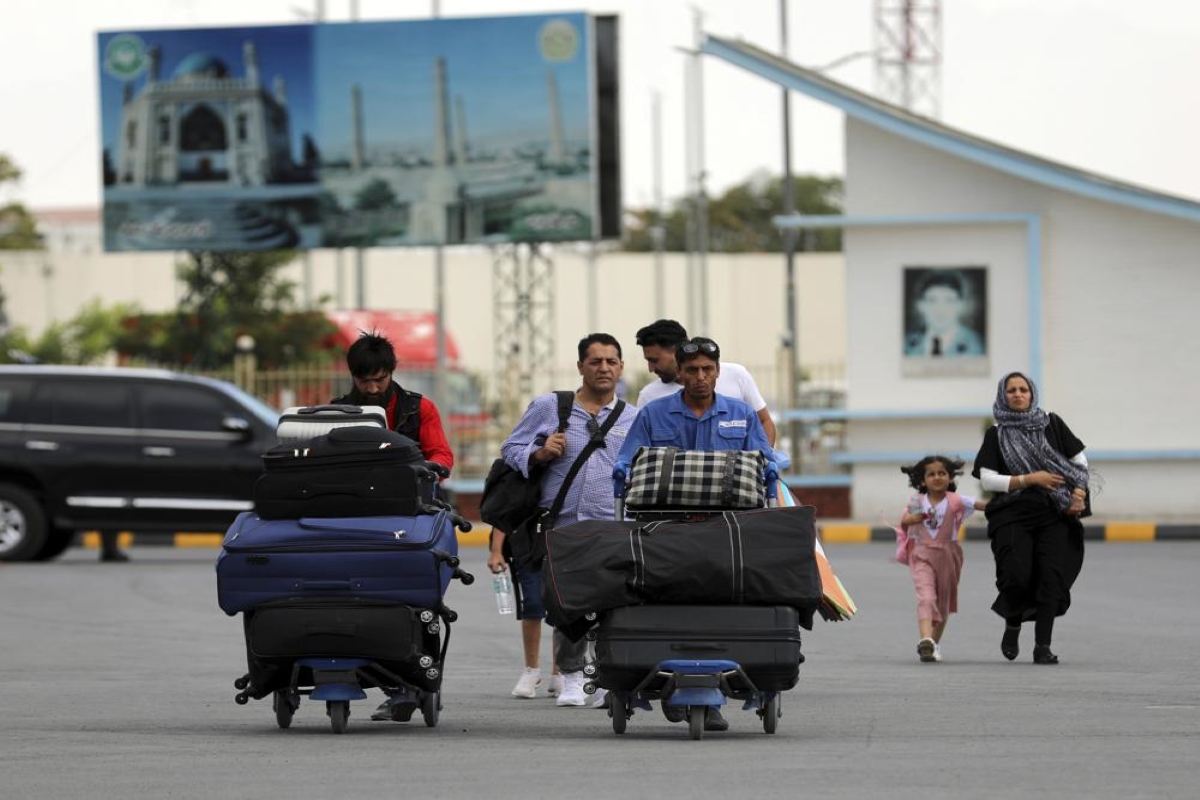The Taliban on Sunday seized the last major city outside of Kabul, cutting off the capital to the east and tightening their grip on the nation as tens of thousands fled their rapid advance.
The collapse of Jalalabad, near a major border crossing with Pakistan, leaves Afghanistan’s central government in control of just Kabul and seven other provincial capitals out of the country’s 34.
Advertisement
In a nationwide offensive that has taken just over a week, the Taliban has defeated, co-opted or sent Afghan security forces fleeing from wide swathes of the country, even with some air support by the U.S. military.
As the U.S. speeds troops into the country to protect its embassy, Boeing CH-47 Chinook helicopters could be seen taking off and landing near the diplomatic outpost on Sunday morning.
Wisps of smoke rose from the embassy’s roof as diplomats urgently destroyed sensitive documents, according to two American military officials who spoke on condition of anonymity.
Thousands of civilians live under the sky as a facade of calm prevails in Kabul whose ATMs have run dry of cash as hundreds gather in front of private banks to recover their life saving before it is taken over by the Taliban.
Militants posted photos online early Sunday showing them in the governor’s office in Jalalabad, the capital of Nangarhar province.
Abrarullah Murad, a lawmaker from the province said that the insurgents seized Jalalabad after elders negotiated the fall of the government there. Murad said there was no fighting as the city surrendered.
Atta Mohammad Noor and Abdul Rashid Dostum, two of the warlords Ghani tried to rally to his side days earlier, fled over the border into Uzbekistan on Saturday, said officials close to Dostum.
Writing on Twitter, Noor alleged a “conspiracy” aided the fall of the north to the Taliban, without elaborating.
“Despite our firm resistance, sadly, all the government and the Afghan security forces equipment were handed over to the Taliban as a result of a big organized and cowardly plot,” Noor wrote. “They had orchestrated the plot to trap Marshal Dostum and myself too, but they didn’t succeed.”
The U.S. has continued holding peace talks between the government and the Taliban in Qatar this week, and the international community has warned that a Taliban government brought about by force would be rejected.
“We have started consultations, inside the government with elders and political leaders, representatives of different levels of the community as well as our international allies,” Ghani said. “Soon the results will be shared with you,” he added, without elaborating further.
Many Afghans fear a return to the Taliban’s oppressive rule. Salima Mazari, one of the few female district governors in the country, expressed fears about a Taliban takeover on Saturday in an interview from Mazar-e-Sharif, before it fell.
“There will be no place for women,” said Mazari, who governs a district of 36,000 people near the northern city. “In the provinces controlled by the Taliban, no women exist there anymore, not even in the cities. They are all imprisoned in their homes.”
In a statement late on Saturday, however, the Taliban insisted their fighters wouldn’t enter people’s homes or interfere with businesses. They also said they’d offer an “amnesty” to those who worked with the Afghan government or foreign forces.
“The Islamic Emirate once again assures all its citizens that it will, as always, protect their life, property and honor and create a peaceful and secure environment for its beloved nation,” the militants said. “In this regard, no one should worry about their life.”











